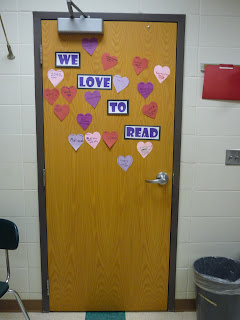I found this clip art and fell in love. I have many students who absolutely love sports and I'm always looking for ways to engage them in therapy sessions. I created three sports packets with a sports theme! Everything in the packets (with a few exceptions) is completely in a sports theme. All the stories for comprehension and problem solving as well as the sentences are sports related.
You can check out all three in my TPT store!
Sports Language for Pragmatics
Sports Language Set
Sports Activities for Grammar
The first set is the Pragmatics Set!
All parts of the pragmatics set are in a sports theme.
There are 20 inferences cards with bonus game cards.
24 problem solving paragraphs with game cards included.
18 joke cards to use to work on joke telling and social skills! These are also great to use with articulation and fluency generalization.
18 idioms with a sports origin are discussed with meanings and sentence examples!
16 conversation cards with bonus game cards round out the pragmatic activities. All conversation cards have a sports related topic. These would also be great to use with articulation and fluency students for generalization skills.
All of my sports sets include a bonus Cariboo topper.
Check out the
Sports Language for Pragmatics in my TPT store and have fun!
Next up is my Sports Set for Language!
Sports Language Set
Similarities and differences and following directions are not completely in a sports theme.
Comprehension questions have a short paragraph followed by three questions. All stories are sports related! Game cards are included. 24 story cards.
One and two step following directions. This is the sports set, so you will need some kind of ball to follow the directions. I'm planning on using a soft ball like a thumbball when working on the directions.
Students need to label one way items are similar and different for each card. Game cards are included.
Fact and opinion cards are all in a sports theme. The second, not picture page, has fill in the blank cards for local sports teams. "The _______ are the best football team." This is to allow for variation in all the different places we live, and for kids to explore fan-opinions.
The Sports Language Set also includes the Cariboo top, pictured above.
Grab the
Sports Language Set in my TPT store!
Last is the Sports Grammar Set
The
Sports Activities for Grammar set is the biggest of the three sets. I kept thinking of different activities for grammar that I wanted to work on!
The pronouns set works on She/Her/Hers, He/His/Him and They/Their pronouns. Cards for each pronoun are included.
18 regular plurals cards, 9 paired plural nouns. All plurals have a sports theme!
18 irregular plural cards, 9 paired plural nouns. These don't have a sports them, since there aren't enough irregular plural nouns for that!
Regular past tense verbs cards, words and sentences with a sports theme!
Irregular past tense verbs, in words and sentences with a sports theme!
Finally third person singular verbs! Fill in the blank sentences with a sports theme.
Cariboo cards, pictured above are also included with this unit.
Grab the
Sports Activities for Grammar in my TPT store!



































